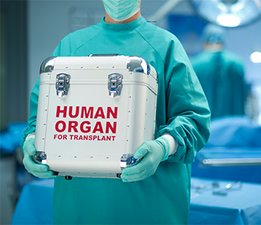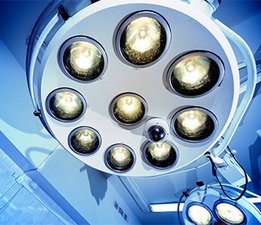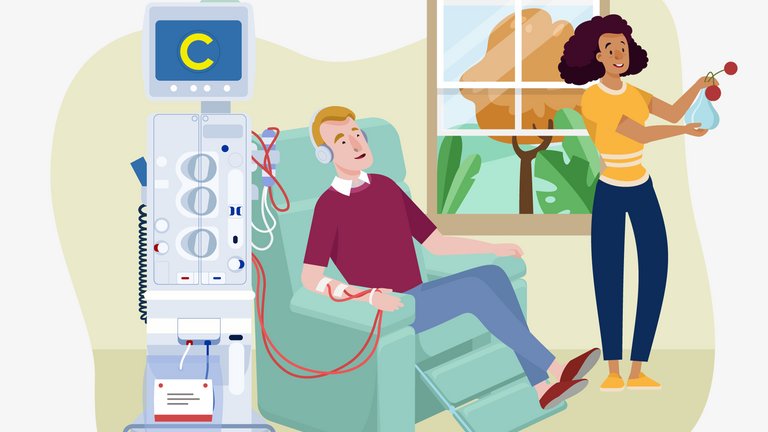Haemodialysis can be performed at home, in a self-care / limited-care unit or in a dialysis centre.
Transplantation
What is kidney transplantation?
Compatibility is key
For successful transplantation, the recipient and the donor must be compatible with each other. This means that both parties have a compatible blood type and matching tissue, which lowers the risk of the recipient’s body rejecting the donor kidney. Prior to the operation, a range of laboratory tests will be done to verify compatibility.
Receiving a kidney
In the operating theatre
Possible complications
Part of making an informed decision about transplantation is knowing about the potential risks. Receiving a donor kidney is associated with three primary concerns: rejection, functionality, and organ lifespan.
After the transplant, you will need to take certain medications, including immunosuppressants that reduce the risk of rejection. It’s essential for you to take all medications your nephrologist prescribes you to reduce this risk to an absolute minimum. However, because these drugs suppress your immune system, it’s essential for you to really take care of yourself after the operation.
In terms of functionality, some donor kidneys begin working immediately while others take a few days. If you fall into the latter group, you may require dialysis until your new kidney functions normally. This is common and is not an immediate reason to worry about the transplant’s success.
Finally, on average a donor kidney lasts for 10-15 years. This is because the kidney function slowly decreases over time. Thereafter, you always have the option of going back on dialysis or trying to find a second donor kidney either via live donation or the national transplantation list.
While complications can happen, try not to worry about them beforehand. Your nephrologist will give you the best possible treatment before, during and after transplantation, and you should address any specific questions or concerns you have with him.
Making the right choice
Transplantation is a highly personal topic – one that you should give both time and thought to. Perhaps begin by speaking to your nephrologist about your own situation. If you both agree that transplantation is an option, you can always place yourself on the list if you don’t have a living donor, and give the decision more thought while you wait.
Speaking to others about the pros and cons of transplantation could help you reach a decision.
In the meantime, know that you have the full support of the NephroCare team. No matter what, we will always be there to provide the best quality dialysis care – if, when and where you need us. We also offer our patients assistance and advice related to transplantation.
In our patient stories section you can also read the story of a Hungarian patient who had transplantation and shares his experience with us.





